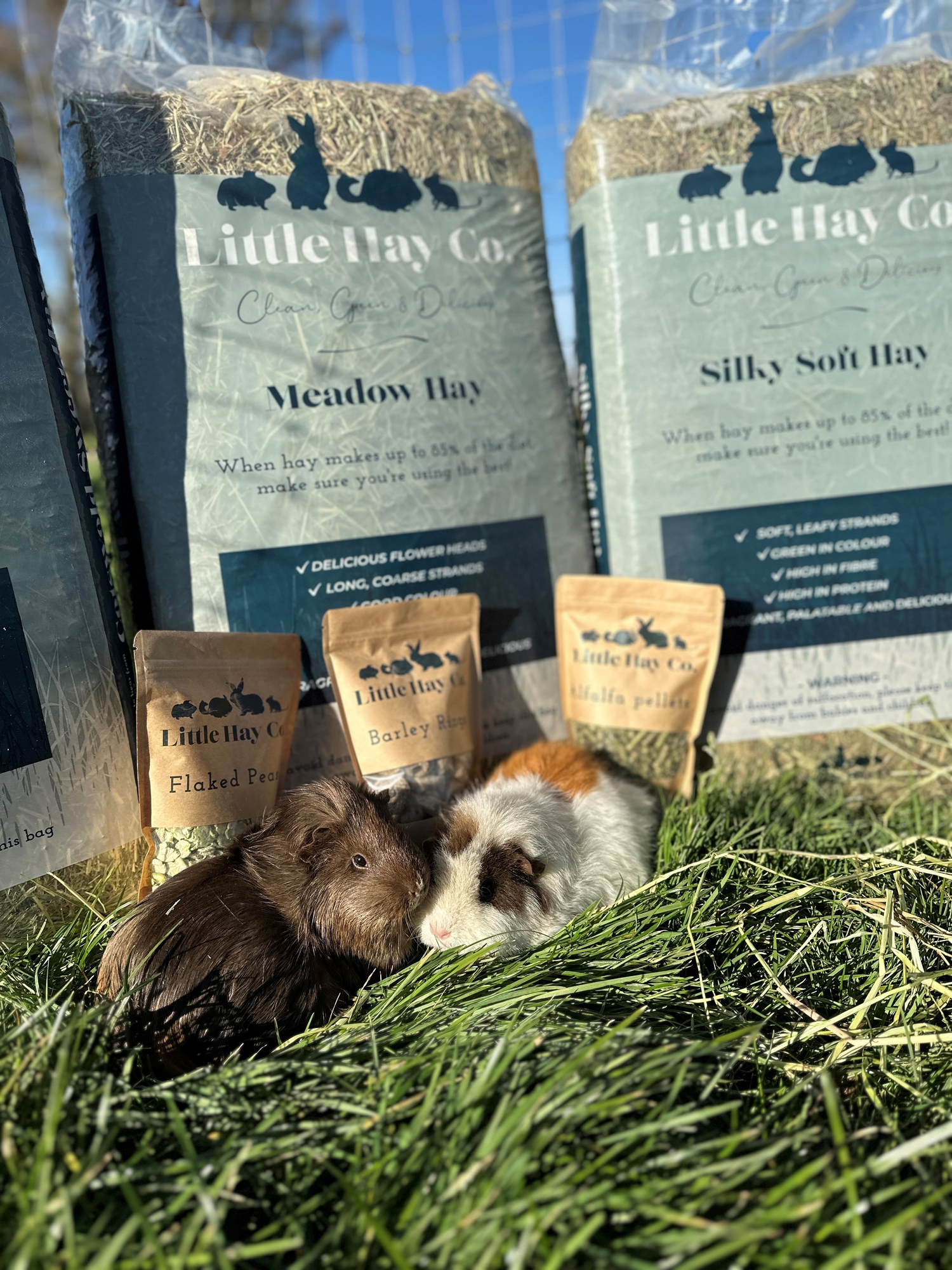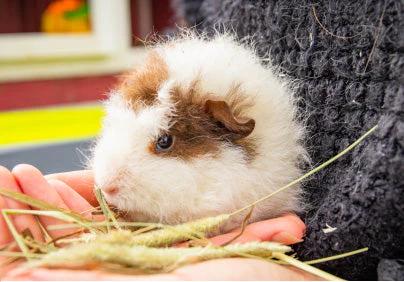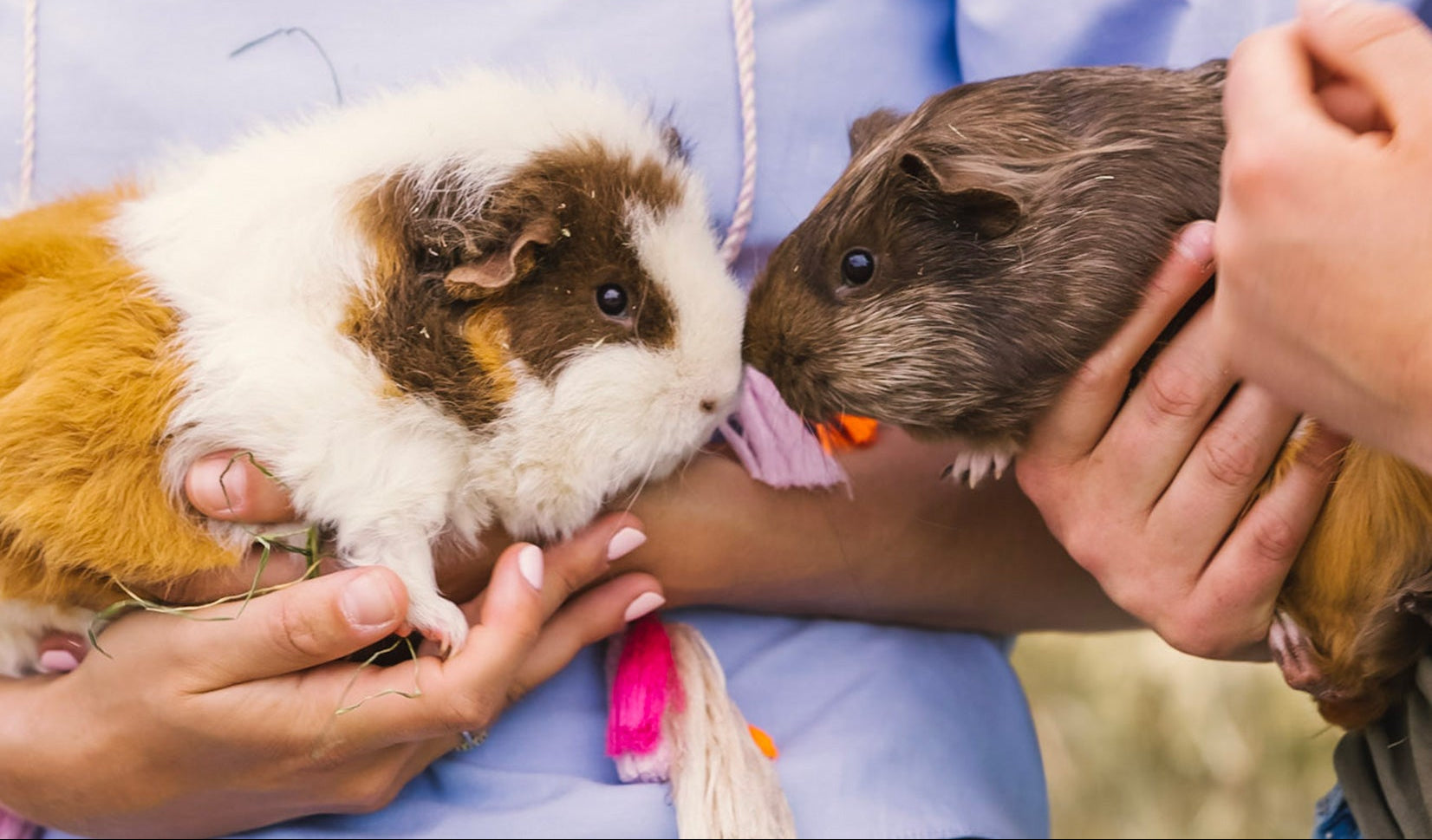What should a guinea pig's diet consist of?
Guinea pigs are herbivores and require a diet rich in fresh vegetables, hay, and pellets. Approximately 80% of their diet should consist of hay, such as Timothy hay, which aids in digestion and keeps their teeth healthy. We think our Silky Soft is the perfect Guinea Pig hay and our own piggies agree! Hay should be readily available, Guinea pigs eat continuously so "meal times" shouldn't restrict them. Always ensure fresh, green hay The remaining 20% should include a variety of leafy greens, such as kale, spinach, and romaine lettuce. Additionally, provide a small amount of guinea pig pellets daily to ensure they receive all necessary nutrients.
How can you ensure your guinea pig's health?
Regular veterinary check-ups are essential to ensure your guinea pig's overall health. Additionally, maintain a clean living environment by regularly cleaning their enclosure and providing fresh bedding. Guinea pigs are prone to respiratory issues, so their enclosure should be well ventilated and a dust free hay is important to help avoid respiratory illnesses. Guinea pigs need space to run, forage and popcorn! Two Guinea pigs need a minimum floor space of 120cm x 60cm x 45cm. Levels are fun too but they should not be in place of lateral space.
Long Stemmed hay is great to ensure good dental and digestive health. Guinea pigs need to eat all day to wear down their teeth (which continuously grow) and to keep their digestive system moving and avoid GI Stasis. High fibre diets are key. Guinea pigs cannot produce Vitamin C so vitamin C supplemented pellets are a great daily additional to their diet as well as high Vitamin C veg like bell peppers.
What are common guinea pig behaviors?
Guinea pigs are social animals and enjoy companionship. They may exhibit behaviors such as popcorning (jumping in the air), purring, and wheeking (high-pitched vocalizations) when they are happy or excited. They also love to explore their surroundings and may chew on objects to keep their teeth trimmed. It's important to provide them with toys and tunnels to keep them mentally stimulated.
Guinea Pigs are territorial and will establish hierarchies in their pairs or groups. It is important to monitor any bonding groups or pairs a certain amount of mounting, rumbling is to be expected as they assert dominance however blood should never be shed.
Guinea Pigs are fertile from 3-4 weeks old and will reproduce easily, so it is important to neuter to avoid adding to the already overpopulated piggy world. Keeping same sex groups or neutering is the only way to avoid pregnancies. Guinea Pigs can get pregnant immediately after giving birth and even get pregnant if they have adjoining cages! Essentially they just have to think about the "deed" and they are going to be having babies!
How should you create a suitable environment for your guinea pig?
Guinea pigs require a spacious enclosure with plenty of room to move around.
Guinea pigs need space to run, forage and popcorn! Two Guinea pigs need a minimum floor space of 120cm x 60cm x 45cm - two boars will need more than this. Levels are fun too but they should not be in place of lateral space, they have no depth perception so any ramps of levels should have edge protection.
The enclosure should be lined with a soft bedding material, such as paper bedding or fleece, to provide comfort. Avoid using cedar or pine shavings as they can be harmful to their respiratory system. Additionally, ensure the environment is placed in a quiet area away from direct sunlight and extreme temperatures.
Guinea pigs are prey animals so naturally hide and seek shelter. Hides are essential to help them settle into their home, piles of hay for foraging allow them to hone natural instincts and toys for enrichment will keep them busy too.
Why is companionship important for guinea pigs?
Guinea pigs are highly social animals and thrive in the company of other guinea pigs. It is recommended to have at least two guinea pigs to prevent loneliness and promote their overall well-being. When introducing new guinea pigs, ensure proper introductions are made to avoid any aggressive behavior. Providing companionship will help reduce stress and provide mental stimulation.
if you really struggle with bonding your pet, local rescues have free services to support you or you can have cages adjacent to each other.
By following these guidelines, you can ensure your guinea pig leads a healthy and happy life. Remember to provide a balanced diet, a suitable living environment, and companionship to keep your guinea pig thriving.













